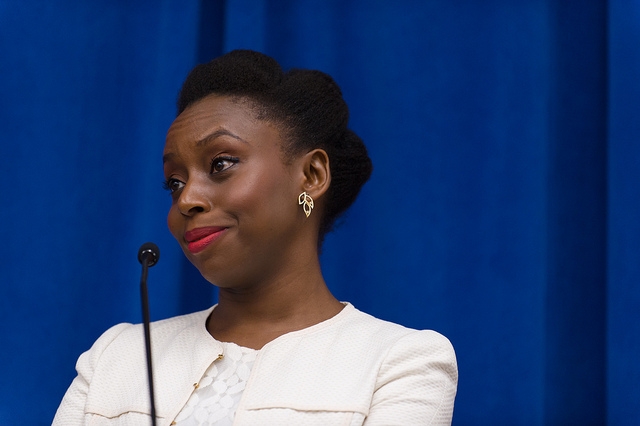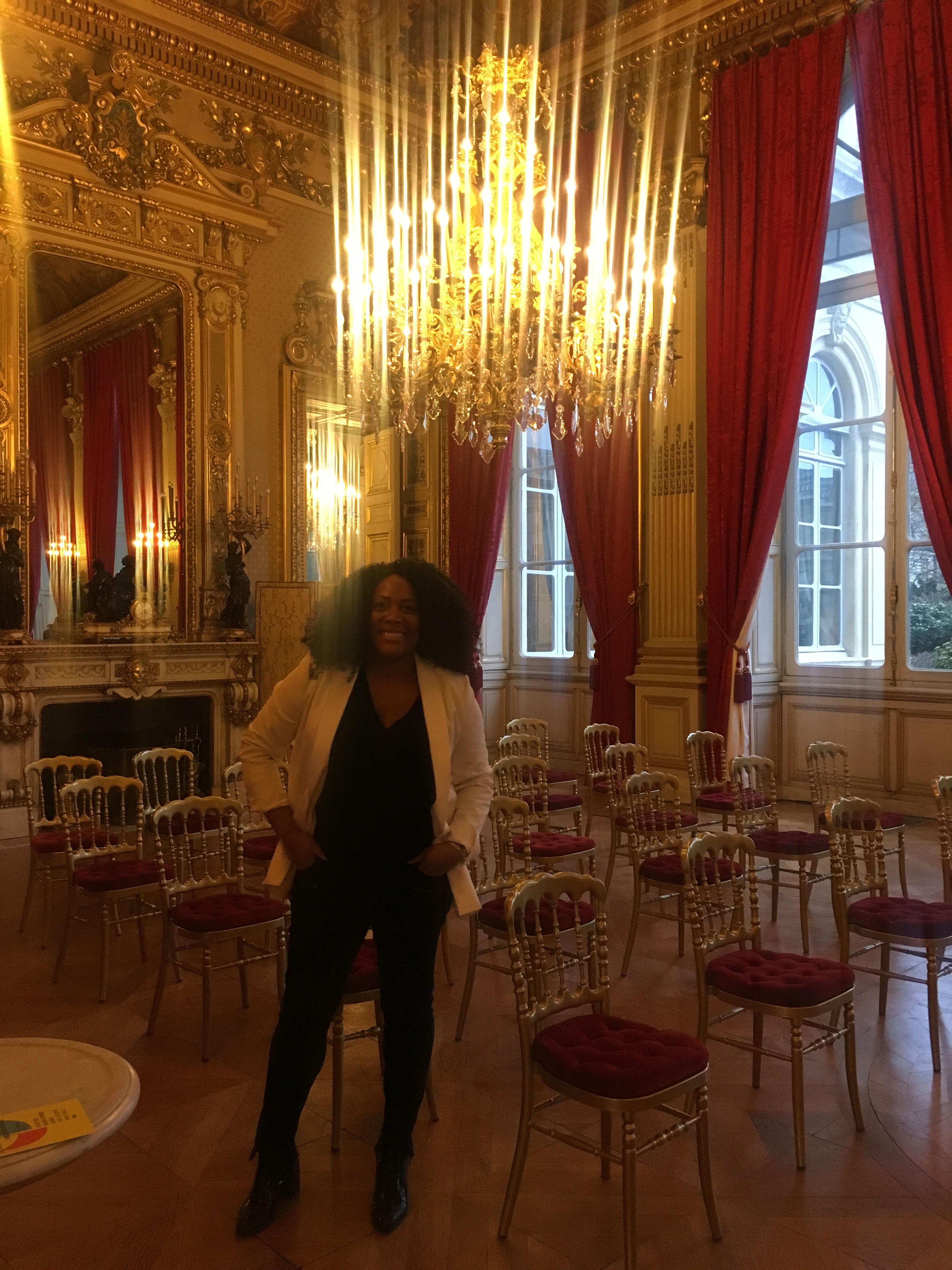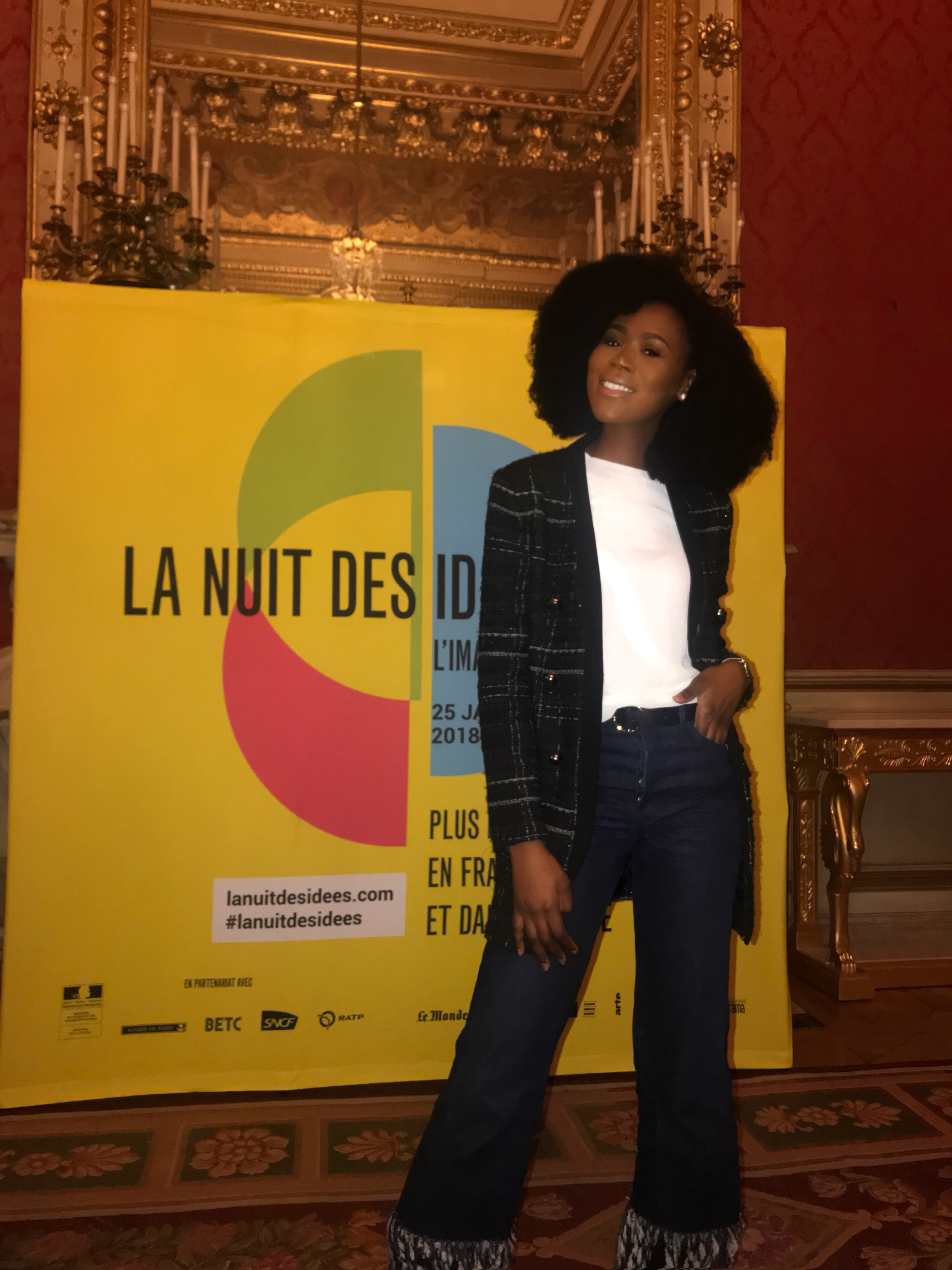A Night of Microaggression?

"I'd like to thank Chimamanda. In its history, rarely have we seen the drawing rooms of the Quai d'Orsay so ... mixed and ... so colourful!"
The author of this quintessentially French type of verbal gaffe is Caroline Broué, French senior journalist and executive producer on France Culture (the national public cultural radio station). Journalists, diplomats and a diversified group of citizens packed the French ministry of Foreign Affairs, also known as Quai d'Orsay, for the hosting of its annual cultural and philosophical conference, "La Nuit des Idées" (A Night of Ideas) held on Jan. 25.
The guest of honor, Chimamanda Ngozi Adichie, 40, a Nigerian award-winning author of the highly praised "Americanah." Besides being the new vibrant face of African literature and the darling of feminism, this good friend of the Obama family broke the internet in 2012 with a TED conference called "We should all be feminists." This phrase and her speech made such a buzz that it gained crossover attention in both the political and pop culture worlds. Brands like Christian Dior featured the phrase on their products, and global pop stars like Beyonce gave Adichie's speech a tribute in her hit song "Flawless." Adichie eventually wrote her conference as a literary essay, which was offered to every 16-year-old girl in Sweden.
Thanks to pop culture, which quickly adapted and broadcasted her message, Adichie helped feminism by giving it a fresh face and broadening it to a new audience. In France's diplomacy headquarters, many women of every age and race were drawn by this unapologetic figure they admire. They were filled with gratefulness for this woman who enlightened their many struggles. Numerous fans were part of the crowd, including Black French citizens and members of the African Diaspora. This event was actually one of the first and rare times the French state welcomed in one of its most prestigious institutions, guests as ethnically diverse as its whole population.
The historical Salon de l'Horloge at Quai d'Orsay. Image Credit: Instagram.com/walkinparis
"I think it reflects very poorly on French people that you have to ask me the question. It's 2018..."
La Nuit des Idees successfully highlighted oppressions based on gender and race. However, the conversation took an unexpected path changing the atmosphere of openness, respect, and cultural exchange that reigned in the 214-year-old luxurious hotel particulier.
As Adichie finished her answer, Broué asked her the following question, "Are your books read in Nigeria ? Are there bookstores in Nigeria?' Hue and outcry struck the traditionally hushed elegant room. The crowd was flabbergasted and violently shouted at the journalist. Adichie was speechless and gave a faint smile of incomprehension. Embarrassed by the reactions but unashamed by her statement, Broué continued, "When we speak about Nigeria in France, sorry about that but it's about Boko Haram, about violence and insecurity. Which justifies my question, are there bookstores in your country. I suppose so, but do we read in Nigeria? I could ask the same for France.'
The author answered very calmly, "I think it reflects very poorly on French people that you have to ask me the question, I really do. It's 2018, I mean, come on..." Her reply was regularly interrupted by her own astounded laughs. As the whole room vigorously cheered the famous author, the radio editor-in-chief got red as a beet. She tried to move on and analyze Adichie's causes, but the audience was not having it as they slowly resented more and more.
"This type of comment reveals what is not right about the perspective on Black people and Africa in this country."
"There are things you just cannot say" says Francoise Nottrelet. The French media executive was so outraged by Broué's remarks that she approached her at the end of the conference. "Caroline told me 'I certainly realized I wasn't allowed to say it all with this audience!'" I told her, "Had it been about Spain or France you would have never made such assumptions. But you make them here, because we're speaking about an African country. As a senior journalist, it is unacceptable to throw such ignorant and disrespectful remarks. Do your homework!"
Francoise Nottrelet, French media producer and managing director. Image Credit: Francoise NottreletAs some people commented on social media, there is a pattern for French personalities to be proudly condescending and arrogant in their ignorance, especially when it comes to racism. Black French people still remember the incident that involved a communications officer of a prominent French police trade union stating on national television that "calling a black person 'Bamboula' (historically charged racist slur used against Blacks) is sort of appropriate." The officer continued to use this term after a journalist told him police officers racially profile black people, spit on them, and call them 'Bamboula' in some suburbs last year.
The French also remember former prime minister and failed presidential candidate Francois Fillon, who referred to colonization as "cultural sharing" during his campaign. He also said, "France is not guilty for wanting to share its culture to peoples of Africa, Asia, and North America (back in the day)." These two cases, in addition to a multitude of others throughout the years, demonstrate Broué's question is a direct result of a long standing French tradition that seems unlikely to end.
Nonetheless, many people in attendance and online highly condemned the poor choice of words used by the French presenter, like CNN reporter Isha Sesay via Twitter:
Re. reporters freely asking questions, you're preaching to choir. But I think you're willfully overlooking bias in question. I agree with #Chimamanda - this journo was wilfully catering to "retrograde idea #Africa is so apart" one can't assume #Nigeria would possess bookshops https://t.co/c8MVyiYUmW
— Isha Sesay (@IshaSesayCNN) 27 janvier 2018
Other guests, who were also native Africans, just couldn't realize what was being said. Inno Yebuah, a lifestyle blogger from Ghana who studies International Relations in Paris, was completely taken aback:
"This type of comment reveals what is not right about the perspective on Black people and Africa in this country and the western world. This journalist sits there, nonchalantly making serious backward statements like 'How surprisingly mixed the crowd is.' But she needs to know that the world is not white anymore, and should be careful about how she chooses her words and how they're going to be received."
Lifestyle blogger and graduate student Inno Yebuah. Image Credit: Inno Yebuah"France doesn't seem to realize it is no longer an 18th century world power... Oh, the Minister has left?"
Before the conference closed, the renowned novelist decided to unapologetically express her political views.
"Many people in Nigeria laugh about the US president and say America can no longer lecture us, Africans, about good leaders. We've been looked down so much about how corrupt and terrible our leaders could be, which is true. However, America has lost its political prestige and moral authority to talk about leadership."
Adichie continued, " I think France doesn't seem to realize it is no longer an 18th century world power... Oh the Minister has left? Oh ok, good!"
Under the serious gaze of the Nigerian ambassador and the embarrassed Broué and French dignitaries, Adichie boldly finished by referring to the history of France and Africa as "troubling," "vexed," and France's cultural power over Africa "unhealthy." The whole crowd united as one body to give Chimamanda Ngozi Adichie a three-minute-long rockstar-worthy standing ovation.
Needless to say, Adichie has become one of the most famous novelists in the world, proving that African literature resonates well into the global mainstream.









